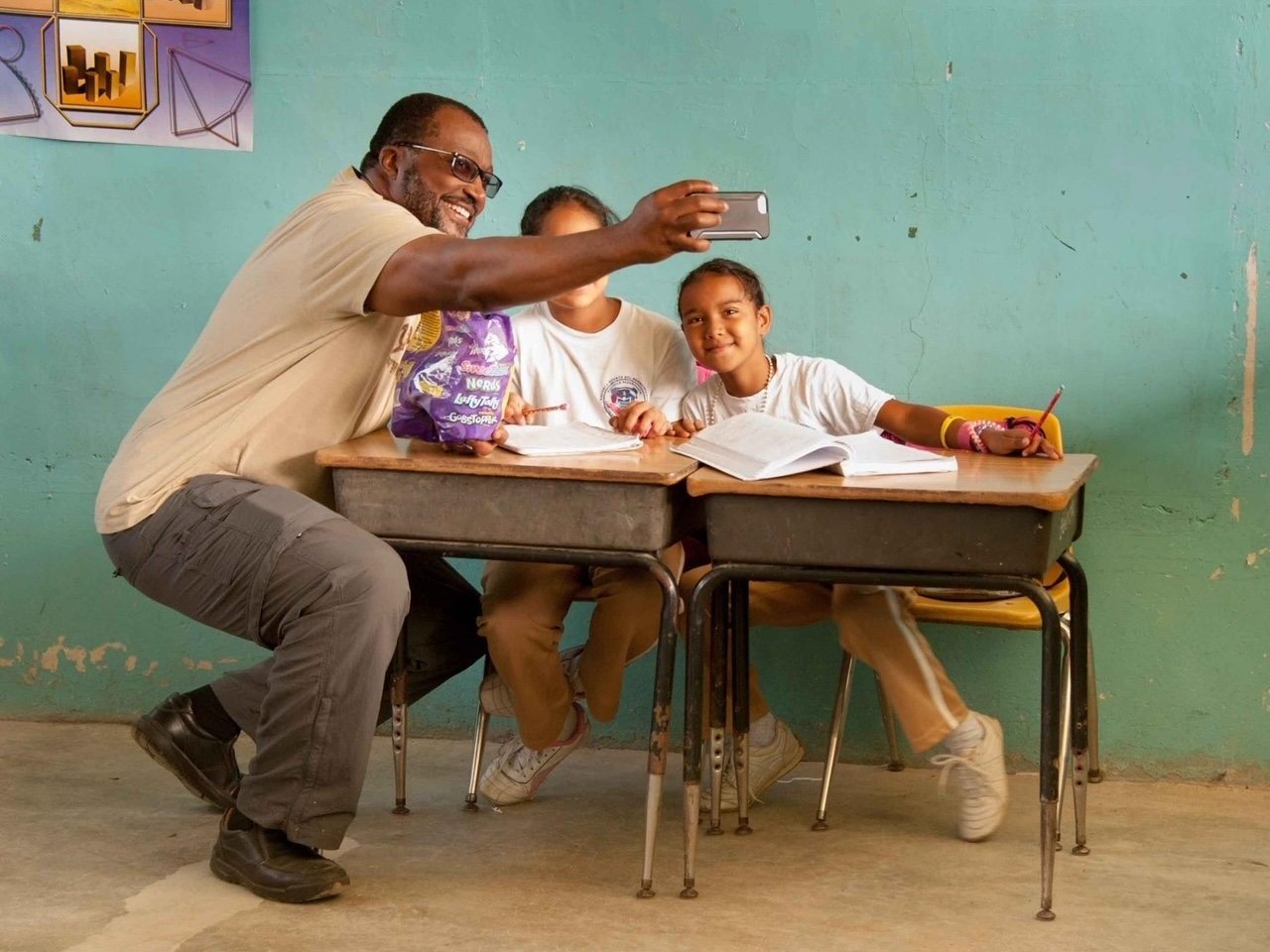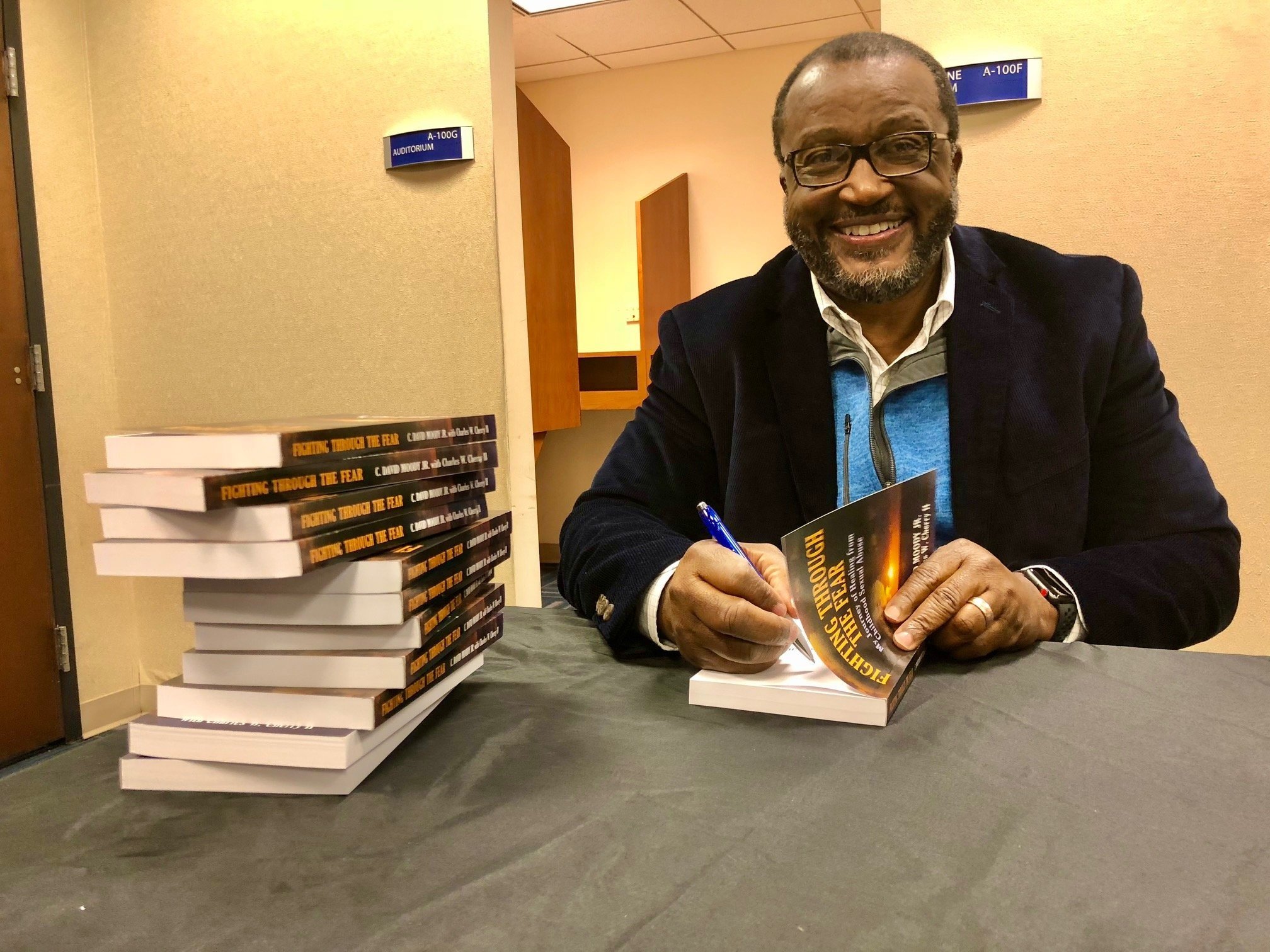Blazing a Trail from Trauma to Triumph
C. David Moody Jr, ALI 2015
President and CEO of C.D. Moody Construction, author, and public speaker helping others through various stages of abuse
By Clea Simon
When Atlanta businessman C. David Moody Jr. ascends Mount Kilimanjaro in January, he will once again be demonstrating how we can all move forward from the depths of trauma to reach new heights. The President and CEO of C.D. Moody Construction, which is ranked among Black Enterprise’s Top 100 Black-owned businesses nationally, the Atlanta-based businessman has already reached the peaks of business success. But by speaking out about his own history of childhood abuse, the 2015 Advanced Leadership Initiative Fellow now also shows others the path of recovery.
A graduate of Morehouse and Howard universities, Moody was sexually abused as a child but had long repressed the trauma, working as an architect/field engineer and teaching structural design before founding his own firm in 1988. Although the business was a success, in 1992 the memories broke through, and Moody suffered what he described as a breakdown. His wife Karla, a registered nurse, suggested therapy. But even as he dealt with his own post-traumatic stress disorder, Moody – ever a builder – realized he could also create a larger network that would reach others, like him, many of whom might not have his insight or resources. It wasn’t until he came to ALI in 2015, however, that he fully appreciated how important such outreach could be – and what he needed to fulfill his potential.
“I was just starting to speak publicly on being a survivor of childhood sexual abuse,” said Moody. “But ALI helped me realize that one person could really make a difference in the world.”
ALI, he recalled, gave him the gift of reinvention – and time to take care of himself. “For the first time in a lot of years I got to be invisible,” he recalled with a laugh. Constantly recognized in Atlanta, in Cambridge “nobody knew me when I walked around campus.” The relief was palpable, he said. He grew a beard, and slowly began to realize how important such down-time was to growth and healing. Taking a wide range of classes at the Divinity School and at the Harvard Art Museums, he found himself inspired and refreshed. “It was incredible at 59 and as a trauma survivor to finally have that kind of experience,” he said. “All the history at Harvard – it was amazing. The speakers that would come, and the people you would just see walking on campus,” he said. Seeing Alphonse Fletcher University Professor and Director of the Hutchins Center for African and African American Research Henry Louis “Skip” Gates Jr., whom he had also heard speak, simply walking through Cambridge, “just made me go ‘wow,’” he said. In addition, he and Karla bonded with the other ALI Fellows, forming friendships that continue to this day.
The overall impact of his ALI experience – and the ongoing relationships that started there – has been restorative. “I have a saying now: I will age, but I'll never become old. And I got that from being at ALI, really realizing how much self-care and healing ties into performance.”
Moody (ALI ‘15) pictured at a visit to a Honduras school while on a mission trip
That self-care has allowed him to reach out more to authors, and in 2016 his book, Fighting Through the Fear – My Journey of Healing from Childhood Sexual Abuse (with Charles W. Cherry II), was published. Readers have responded enthusiastically, noting that the book has changed their lives, giving them a voice – and the hope that healing from the trauma of childhood sexual abuse is possible, said the author.
At book signing for “Fighting Through The Fear”
Moody now speaks for children advocacy centers around the country, addressing counselors, legal teams, and investigators that work on child abuse cases and healing. A much sought-after keynote speaker, he has addressed groups of more than 1,000 about “fighting through the fear.” He also writes for outlets including the Atlanta Business Chronicle about healing from a wide range of traumas, including the national trauma of violence that sparked the Black Lives Matter movement.
He’s also training for his expedition to Tanzania, readying himself to climb Mount Kilimanjaro with regular workouts and practice hikes. With plans to produce a documentary about the climb, as well as social media posts, Moody explains the undertaking as a literal manifestation of the journey from trauma to triumph.
“I'm going to take with me my trauma and that of other trauma victims,” he said. “I'm leaving that trauma on that mountaintop for all of us.



